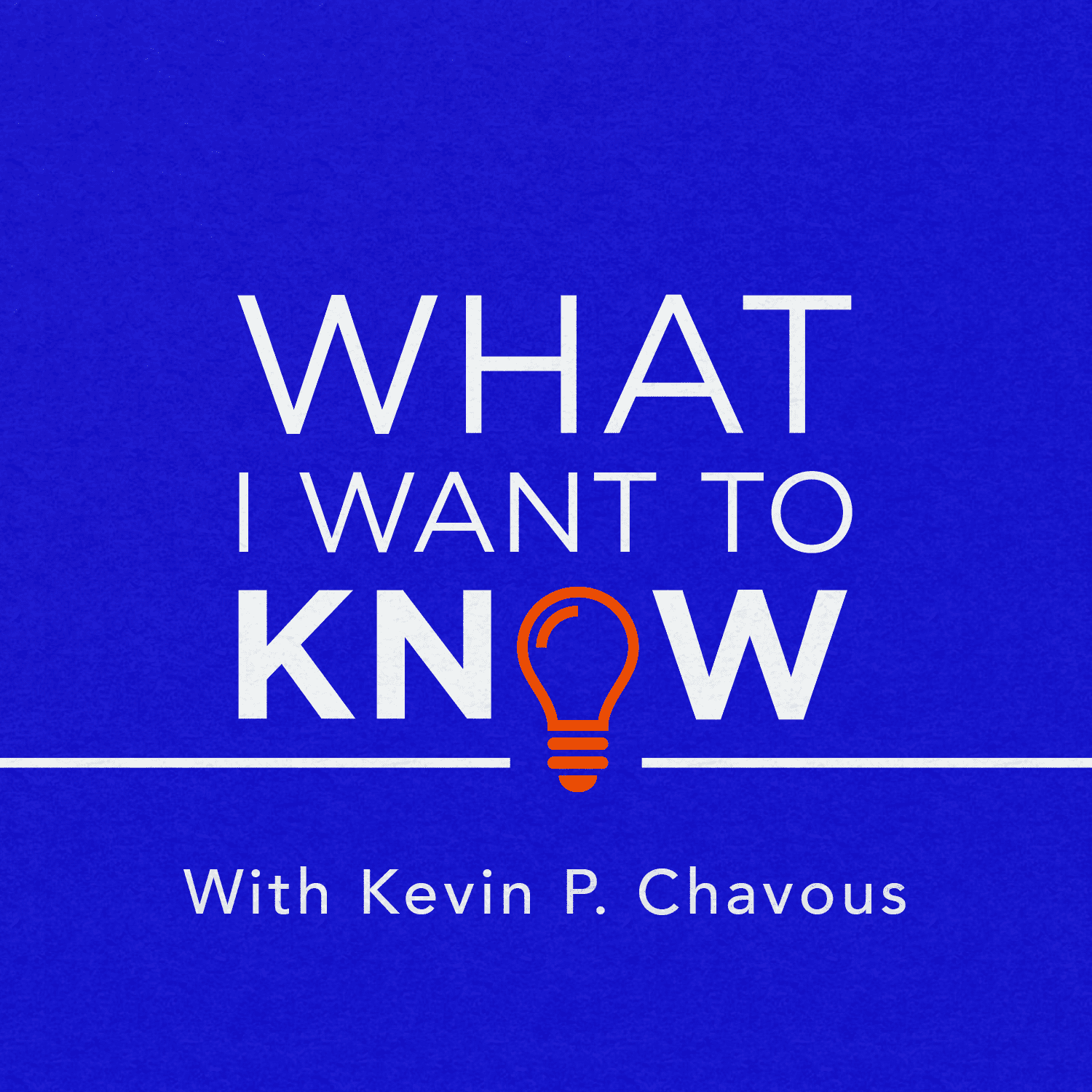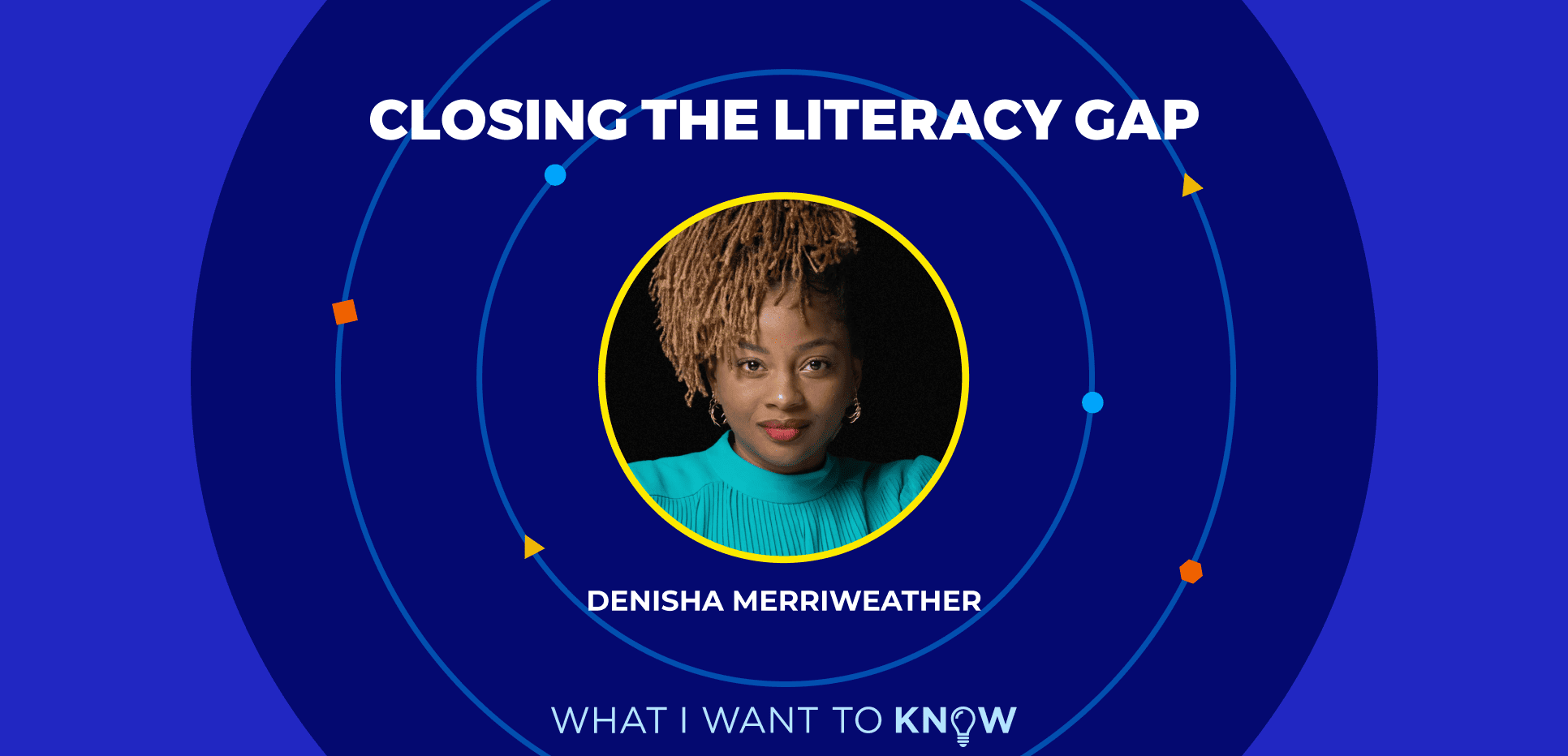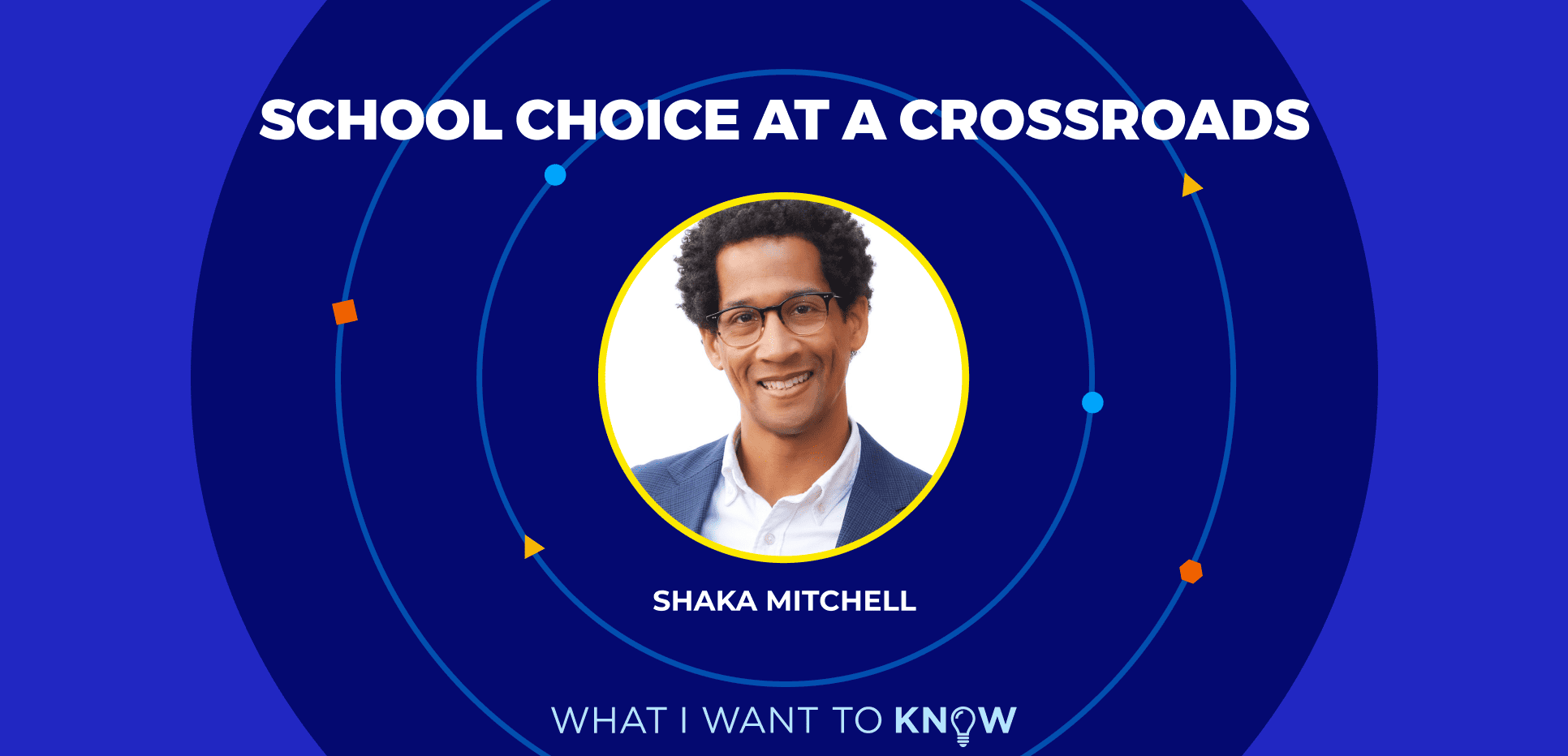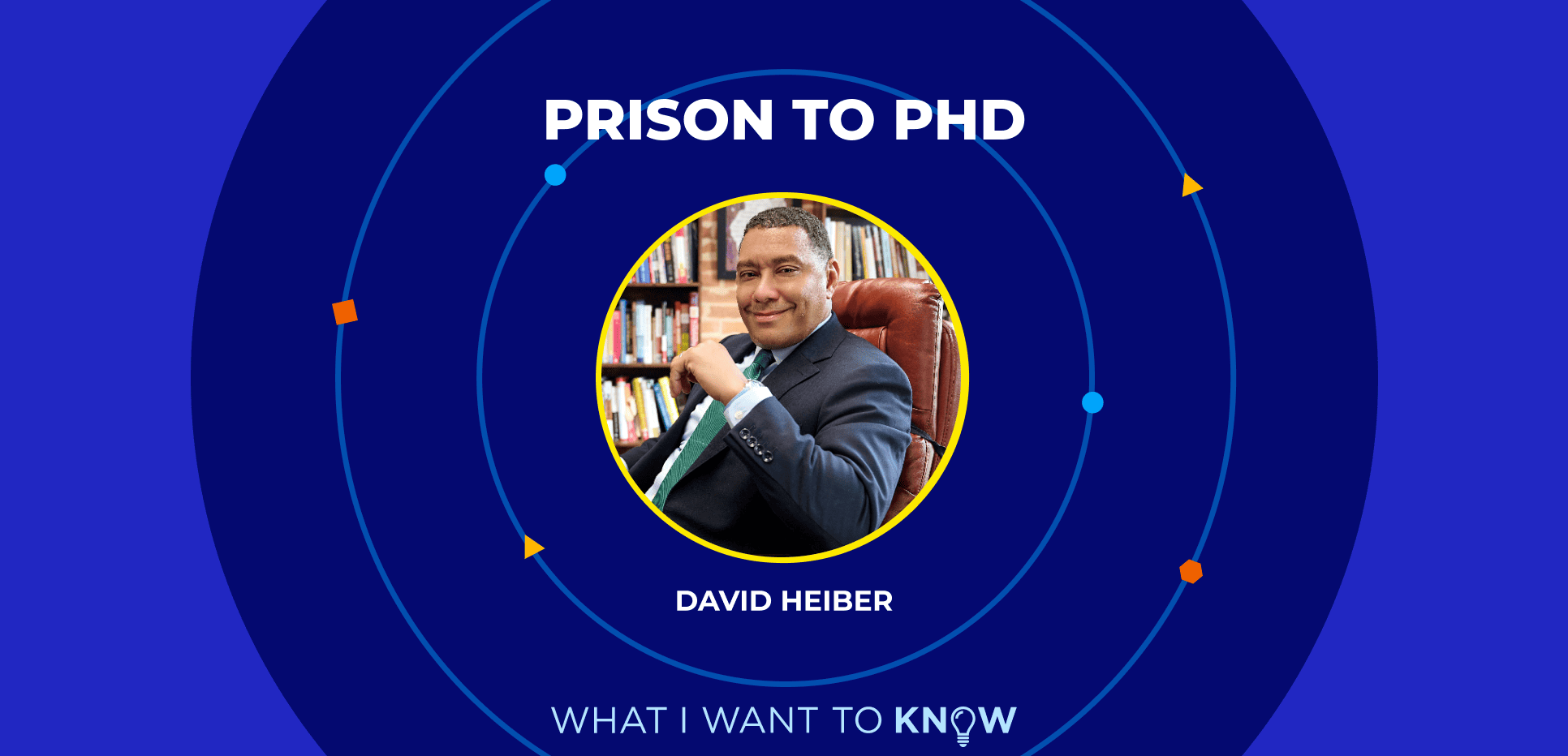Student engagement is vital for learning. Some studies have found that while most students enjoy science, many dislike science classes.
Why are students less interested in these studies, especially as they get older? How can we make science education more engaging and accessible for all students?
In this episode, Kevin is joined by Mat Kaplan, host and producer of Planetary Radio at the Planetary Society, to discuss how we can make science more meaningful to our students.
Listen to the Full Audio
Listen on: Apple Podcast, Spotify
Transcript
Kevin: Student engagement is key for learning. This is especially important for subjects like science. Some studies have found that while most students enjoy science, many dislike science classes. Why are students less interested in science, especially as they get older? How can we make science education more engaging and available for all students? This is What I Want to Know, and today I’m joined by Mat Kaplan to find out.
Kevin: Matthew Kaplan is the host and producer of Planetary Radio at the Planetary Society. What started out as a radio show in one station grew to over 150 stations. Now, two decades later, Planetary Radio is ranked the number one independent space exploration podcast, [backed] with more than 30 years of experience in higher education and an extensive background in broadcasting and journalism. Mat joins us today to discuss how we can make science more meaningful to students. Mat, welcome to the show.
Mat: I am thrilled to be here. Thank you for the invitation, Kevin. I love what you’re doing on behalf of kids in America.
Kevin: This is going to be a fun conversation because I’ve listened to a couple of your shows. You are a fun-generating guy, and you believe in the power of kids learning, and we need more of that. But before we get into Planetary Society and Planetary Radio and the stuff you’ve been doing, you were a DJ, and you also have been interested in radio for a long time. Your parents bought you a radio transmitter at the age of 10. Talk a little bit about this love of radio that really has lasted almost your entire life.
Mat: You can ask any of my college radio friends: I was the world’s worst DJ. But it was in — well, actually, it was before college that I got my start doing the kind of thing I do today. I don’t know if it started with that little transmitter that my parents bought me, but maybe it did. I could transmit about, I don’t know, 150 feet. And so, I would send my little brothers out into the street with my six-transistor AM radio, and if they tuned between a couple of radio stations, they could just barely make out their big brother talking to them. And maybe that is where I fell in love with this, because I just love talking to people this way and sharing the love I have for space and science. But I always had my hand in radio, often at my old college radio station where they would still let me show up and talk to interesting people.
And that led to volunteering, really, at the Planetary Society, and they hired me very quickly. And I worked there for two years before our co-founder Lou Friedman, our old executive director, allowed me to try a radio show, and it was just a radio show back then. Nobody heard of this thing called podcasting. That didn’t happen till years later. We’re still on over a hundred public radio stations, and of course, now we’re the podcast as well. But it is this dream of combining space and radio, I always say my two favorite things outside of family, that Planetary Radio has allowed me to do. And really, it’s broader than space; it’s science in general. You could say science and radio or science and podcasting, but I’m very fortunate.
Kevin: So going back to your start with Planetary Society, did you have an interest in space or the field of science before joining Planetary Society?
Mat: I sure did, right from the start. I often tell people that I kind of grew up at the Griffith Observatory, those iconic domes that sit up there not far from the Hollywood Sign. I call it a shrine to science, and there are several of those around the world, many of those. My parents brought me there. We didn’t live too far from there when I was very young. They brought me there before I could walk. And it has always played a big part in my life. And other so-called informal science education facilities in Los Angeles and later all over the United States had a huge role in shaping my love for this stuff. And then science and school — the funny thing is that once I got to high school and then onto college, I never got to take as many science classes as I really wanted. So really, a lot of this was stuff that I kind of developed on my own with the support of the great books that I read and these informal science facilities that I visited.
Kevin: So let’s talk a little bit about science and traditional education. Many students love science, but they don’t love science classes, and the older kids get fewer science classes. So talk a little bit about that and your thoughts on how we could sort of close that gap.
Mat: Isn’t that a tragedy? Kids really do start out, and this is not me saying this: I get it directly from my boss, our CEO, Bill Nye, the Science Guy. Bill has been following the research on this and, of course, has done more about it than just about anybody in the world with the old Science Guy show. Bill says if we don’t bring out and sustain the natural scientist that is in all kids — because they’re all explorers, even toddlers want to taste everything. Why? Because they want to know about their world. And fortunately, we parents are there to keep them from putting absolutely everything in their mouths. But that’s science; that’s exploration. And even though this has been talked about for years, there still aren’t enough science teachers who are allowed to really kindle or maintain that fire of scientific curiosity that is naturally inborn in us, and it becomes rote; it becomes books.
After all, a lot of those teachers also had the love of science drilled out of them as they were coming up through K-12. It’s the rare teacher, sadly, who understands that you can excite kids in their interest in all of learning through science, because science is a process. Science isn’t just this monolith that some people like to call a religion; it’s not. It’s a way of understanding the cosmos and ourselves, and it’s a great way to apply yourself to knowledge about everything. There are more and more teachers, though, sadly, not nearly enough, who I think are coming to understand that it’s hands-on science; it’s letting kids get their hands dirty and really explore great questions. Come up with a theory and then figure out how to determine whether that theory is correct or whether it needs to be adjusted. That’s the core of science, and there are ways to do this in the schools that are not that difficult, but they’re just not being exercised as much as they should.
Kevin: Now one of the things that’s happening, to your point: traditional education sort of morphed to this place where everything had to be sort of codified and placed in a textbook. And some things, and I think science is one of those subjects, are better suited to not overly relying on textbooks. And you’ve talked about informal science teaching so that teachers are able to use the world around them as a laboratory for learning. And we see more and more schools migrating toward that, even with project-based learning, making sure that they do field trips where they can explore more. Talk a little bit about how schools should move away from just the textbook usage as a tool to teach science to this informal science teaching, which allows teachers to go out into the world and explore it.
Mat: I’m married to a retired teacher who taught in mostly middle school grades for a lot of years, 30 years. And she was lucky in a way because she taught at a parochial school, and they didn’t have these constraints on them. They weren’t quite as tight as they were in some of our public schools. And in fact, she taught with a science teacher who got it, and the book was important in that science class. But this was a woman who understood that kids needed the hands-on experience and was able to give it to them in many ways. Even just around the schoolyard, there was so much that they could do. There are science teachers who might want to expand further, but the requirements of curriculum are so tight nowadays. You know better than most that every single day there is a goal that has to be met, and that goal is probably going to come out of a book, and if you don’t meet it, then who knows?
Your position could be in jeopardy. And that’s unfortunately going to constrain teachers and make it so much more difficult to make science, or perhaps other topics as other subjects as well, as exciting as they might be. And again, there are so many opportunities out there that are available to any school. It’s not that a school needs a million-dollar lab to be able to give kids a hands-on science experience. There are opportunities for science all around us. We just need to let those teachers give them the right training, of course, and show them the excitement that their kids can find in it and that they themselves can find in it and then let them loose. Let them be with the kids and do what they need to. Once they’ve proved their theory or found out what’s wrong with it, then go back to the book, and I promise they’ll be more motivated to study that material so that they know the background.
Kevin: There’s no question that one of the reasons why older kids get less excited about it is that over-reliance on books as opposed to allowing them to explore their curiosity in this area. Let’s go back to Planetary Radio. When you started it, did you have a vision in mind in terms of how to bring to life this world of space exploration?
Mat: Kind of; I had already done a lot of science and technology reporting. And I knew, for me anyway, that the core of the show, the main feature in each show would probably be an interview with at least one scientist or engineer or astronaut or the head of NASA or whatever. And then I hoped that periodically we’d get to do a live show in front of an audience because there’s nothing more exciting than live. And I hoped that now and then we’d be able to go out on the road and do science in person, talk to the scientists in their natural habitat, if you will, in their lab or going down to Chile as I did. Going up to 16,500 feet with a can of oxygen in my hand and visiting one of the great radio telescope arrays on the planet.
Because again, allowing the audience to meet these people that I was getting to talk to and me just being their sort of avatar, I hope, asking the questions that they might ask and visiting the places that hopefully they would visit if they had the opportunity, and maybe they’ll be encouraged to do it if they hear me go.
Kevin: Well, what’s interesting is that there have been so many peaks and valleys in terms of the interest in space: we hit a high point when the astronauts landed on the moon. Then there was this focus on, well, we really shouldn’t spend the resources, but now there seems to be a perceptible rise in interest in space exploration. Talk about where we are now, especially when you look at the timeline of where we’ve come from.
Mat: That’s a great question. I hope you’re right. I hope that interest is increasing again now. We went through a period when the space shuttle stopped flying, and you still can find lots of people out there who say, “Oh, what does NASA do nowadays? I mean, they’re not sending anybody up into orbit.” Well, in fact, NASA was crazy busy with robotic missions, with funding research around the world. That’s why we like to say, and I definitely like to say we’re in a golden era of space exploration because we are learning so much about our solar system and the cosmos. The other good thing about this is that as we expand outward, we know the excesses of exploration and exploitation in the past. Many of us hope that we have a chance to get it right this time as we expand across the solar system and learn about the cosmos.
We shall see, but we’re off to a good start, and we are learning so much. Just in the time, the 20 years that I’ve been doing my show, our horizons have expanded so far, and it’s wonderful to see young people and old folks like us, how thrilled we all get when something lands on Mars or as just happened a few weeks ago, we smack into an asteroid with a dart spacecraft and show that maybe we, puny humans, might just be able to avoid that fate of the dinosaurs that I mentioned a few minutes ago.
Kevin: I have to ask, I’ve got the planetary guy here. Is there life outside of our galaxy?
Mat: I am maybe a planetary guy, but I’m no scientist. I just happen to talk to them for a living. So every good scientist that I know who is working in this area, looking for signs of life off of our own world: they all believe in their secret heart of hearts that we have a good shot at either finding life elsewhere in our solar system or beyond, or finding evidence of past life. Now on Mars, who knows? We know that Mars was a pretty nice place to live. If you go back a few billion years, much nicer than Earth was at the time. Warm, there were oceans, pretty much everything that you would need to support life as we know it here on Earth. If there was life on Mars, did it start there independently? Europa, the moon of Jupiter and Enceladus, the moon of Saturn: we know that these moons have salty, warm, liquid oceans underneath layers of ice.
Who knows? A lot of people think that’s where life started on Earth now. If you have energy, if you have liquid water, on Earth, you’re going to find life. Is it truly out there? We just don’t know yet. And if it weren’t for life on this planet, we wouldn’t see that our atmosphere is 20% made of oxygen. If we found that in the atmosphere of a distant planet, we’d want to take a much closer look at that world because there might be somebody out there to say hello to. The search for extraterrestrial intelligence continues. It’s even grown some lately. Planetary Society has been supporting it throughout its history. There are some other folks out there with privately funded projects. Even NASA, which once was a major funder of this effort, is sort of sticking its toe back in the world of SETI water, I guess that lake of SETI. If we find intelligent life, first of all, I can tell you there’s a whole protocol. I know a lot of these people who are looking for it, and there is a protocol among scientists for how this would be announced.
It would absolutely not be kept a secret. And in fact, it would be a really tough secret to keep even if you wanted to, but nobody really doing this wants to. Would that cause chaos? Would it throw all of our thinking about human primacy across the universe into, well, chaos? I don’t know. It’s also possible it might make us feel a lot less alone. As somebody once said, it’s an awfully big universe if we have it all by ourselves; that seems like a terrible waste of space. There could be people out there who could teach us things. The chances are, because we’re a fairly young planet and a fairly young species and civilization, if we find somebody else, they’re very likely way beyond us. And what does that tell us? That tells us that as great as the challenges that we face are, climate change, nuclear war, you can go on from there. This other civilization somehow got past that, and maybe they still have their own challenges, but they probably made it through the ones that we face right now. Could be an opportunity to learn something.
Kevin: I think that’s well said. And thinking about this conversation, I have one last question. It strikes me that this is the kind of conversation that young people would get excited about if they had more of an opportunity to engage in it. So this is what I really want to know. You have said that every 10-year-old is a natural scientist. So talk to me like I am a six-year-old. What would you say to the six-year-old Kevin? Don’t laugh at that, but what would you say to the six-year-old Kevin about space and science that would get me interested in learning more?
Mat: I giggled a little, but only because it’s such a great question. You know what I would do? I would watch that six-year-old Kevin for a little while, and I would see what you do, like when you’re in the park, when you’re on playground equipment, and maybe on something that spins, and it’s hard to hang on because that thing is spinning so fast. And I would say, “Why do you think that thing is trying to throw you off? Well, it’s this thing we call centrifugal force, and it’s a lot like gravity. In fact, Einstein said there’s no difference between that and gravity.” Or if we found a bug, wouldn’t that open up possibilities if suddenly that six-year-old Kevin found a ladybug crawling on his arm? That’s a wonderful opportunity to talk about life on Earth and how it adapts to its environment and how we all fit into this huge world together. The possibilities are probably endless, and I hope you still have a piece of that six-year-old Kevin inside you.
Kevin: That’s such a great answer. In fact, I have two grandkids, and I’ve got to find a way to have you spend some time with them. That’s exactly the kind of thing that needs to happen. Mat Kaplan, I’ll tell you what, I certainly enjoyed having you on. I definitely enjoy what you’re doing for the world, and thanks for joining us on What I Want to Know.
Thanks for listening to What I Want to Know. Be sure to follow and subscribe to the show on Apple Podcasts, Spotify, or your favorite podcast app so you can explore other episodes and dive into our discussions on the future of education and write a review of the show. I also encourage you to join the conversation and let me know what you want to know using hashtag #WIWTK on social media. That’s #WIWTK. For more information on Stride and online education, visit stridelearning.com. I’m your host, Kevin P. Chavous. Thank you for joining What I Want to Know.
Meet Mat
Mathew Kaplan is the host and producer of Planetary Radio at the Planetary Society. What started as a radio show on one station grew to more than 150 stations. Two decades later, Planetary Radio is ranked the number one independent space exploration podcast.
With more than 30 years of experience in higher education and an extensive background in broadcasting and journalism, Mat joins us today to discuss making science more relevant to our students.






